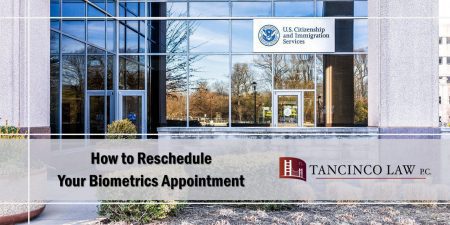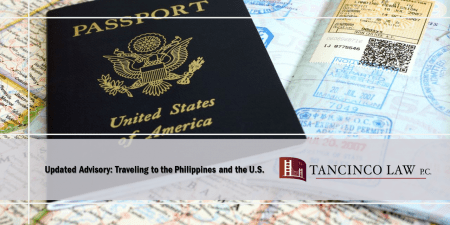Depending on the type of application you file with USCIS, you may be required to appear at a USCIS office for a biometrics appointment. For example, biometrics may be required if you file an I-485 (adjustment of status or green card application), I-765 (application for employment authorization document), I-131 (application for travel document), or an I-539 (application for extension or change of status). During a biometrics appointment, USCIS will collect your fingerprints, a photo, and a sample of your signature.
How to Know If a Biometrics Appointment Is Required
If you are required to appear for biometrics, USCIS will mail an appointment notice to your address and your attorney’s address. The notice will tell you when and where USCIS expects you to appear. You should make every effort to go to your biometrics appointment as scheduled. Rescheduling the appointment will take time and likely delay processing of your application.
If you cannot make it to your scheduled biometrics appointment, you may contact USCIS to reschedule according to the appointment notice’s instructions or the following procedure:
- Call the USCIS Contact Center at 1-800-375-5283 before the date and time of your original appointment.
- Explain why you have “good cause” for rescheduling.
- Wait for a USCIS scheduler to call you back with a new date and time. Please note: USCIS often takes multiple days or weeks to respond to a rescheduling request.
It is vitally important to call as early as possible to request rescheduling. If you do not call USCIS before your scheduled appointment, or if USCIS thinks you do not have good cause to reschedule, they may not agree to reschedule the appointment. If USCIS refuses to reschedule or you do not hear back from them in time and you do not attend the original appointment, your underlying application may be considered abandoned and be denied.
To find out more about rescheduling or determining if you are eligible to reschedule an appointment, we encourage you to reach out to Tancinco Law through our website at www.tancinco.com or law@tancinco.com or call us at 1-888-930-0808.



